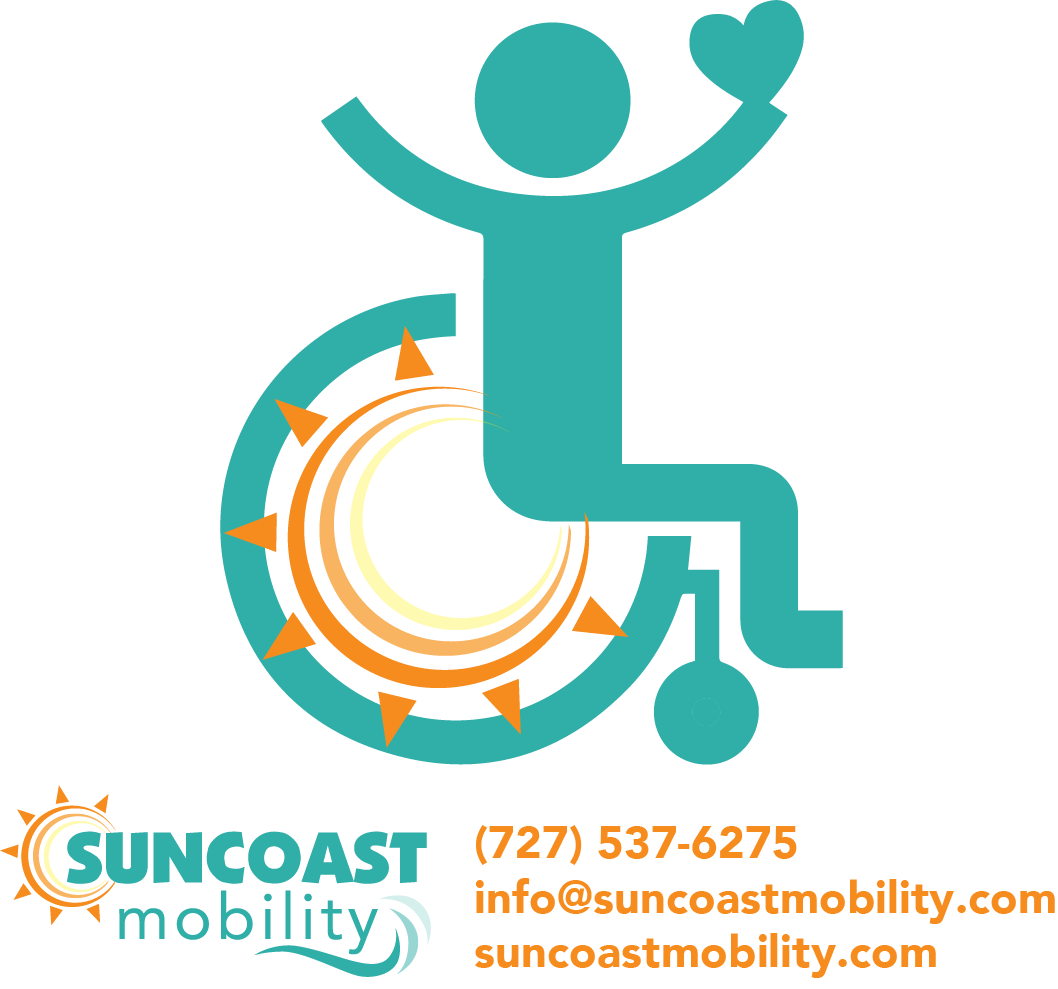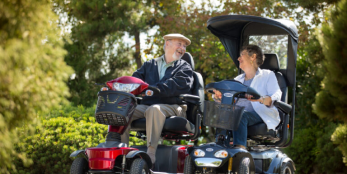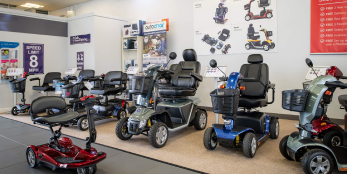Table of contents
Debunking Mobility Scooter Myths: Addressing Stigma and Promoting Acceptance
Mobility scooters have become essential tools for millions of people worldwide, providing independence, confidence, and freedom of movement. Yet despite their increasing popularity and visibility, mobility scooters are still surrounded by myths, misconceptions, and stigma.
These misunderstandings can discourage individuals from using the mobility aids they need, leading to unnecessary physical strain, emotional stress, and social isolation. In this article, we’ll debunk some of the most common mobility scooter myths, explain why they’re false, and promote a more accepting, informed, and inclusive view of mobility aid users.
🚫 Myth #1: "Mobility scooters are only for the elderly."
Reality: Mobility scooters are for anyone with limited mobility—regardless of age.
While many older adults benefit from mobility scooters, age alone doesn’t determine their need. Individuals living with chronic conditions like multiple sclerosis, arthritis, Parkinson’s disease, muscular dystrophy, or injuries may need mobility assistance long before retirement age. Even younger people recovering from surgery or managing temporary disabilities may use scooters to maintain independence.
🔍 Why this matters:
Stereotyping mobility scooters as “only for seniors” marginalizes people of all ages who rely on them. It may also discourage younger individuals from seeking help when they truly need it.
🚫 Myth #2: "Using a mobility scooter means you’ve ‘given up.’"
Reality: Using a scooter is an empowering choice, not a defeat.
This myth is rooted in outdated ideas about disability and strength. In truth, choosing to use a mobility aid is a proactive decision to improve quality of life, reduce pain, and stay active. Mobility scooters allow people to enjoy daily activities, run errands, travel, and participate socially without overexertion.
🔍 Why this matters:
Believing that scooter use equals “giving up” can delay someone from getting the help they need. Promoting this myth may even result in greater health complications due to overexertion or falls.
🚫 Myth #3: "Mobility scooters are just luxury devices for lazy people."
Reality: Mobility scooters are medical mobility aids, not convenience vehicles.
This damaging stereotype unfairly paints scooter users as lazy or undeserving. In reality, mobility scooters are prescribed or recommended by doctors and physical therapists for people with genuine needs. They are often covered by insurance or purchased with medical approval.
Mobility scooters provide essential support—helping people avoid fatigue, pain, or injury when walking is difficult or impossible.
🔍 Why this matters:
This myth can lead to public judgment, dirty looks, or even harassment. It's essential to respect that not all disabilities are visible, and no one should have to justify their need for mobility support.
🚫 Myth #4: "People who use mobility scooters can walk just fine—they’re faking it."
Reality: Many people with limited mobility can walk short distances, but still need assistance.
A common misunderstanding is that anyone using a mobility scooter must be completely unable to walk. However, many users have invisible disabilities or fluctuating mobility. They might be able to stand, walk a few steps, or even walk indoors—but cannot safely walk long distances or manage uneven terrain.
🔍 Why this matters:
Questioning someone's use of a mobility aid based on appearances leads to discrimination. Mobility challenges aren’t always obvious, and people should be supported—not judged—for managing their health responsibly.
🚫 Myth #5: "Mobility scooters are a traffic nuisance or block public spaces."
Reality: Mobility scooters are legally recognized mobility aids and deserve accessible spaces.
While it's true that sidewalks, stores, and public transportation aren’t always designed with scooters in mind, that’s a design problem—not the scooter user’s fault. Users are entitled to access public areas just like everyone else, and many scooters are compact, maneuverable, and designed for safe use in crowded or narrow environments.
🔍 Why this matters:
Public spaces should be inclusive. When we build environments that work for everyone—including those with mobility aids—we make communities more accessible and welcoming.
🚫 Myth #6: "Mobility scooters are unsafe or hard to control."
Reality: Modern scooters are built with user safety, ease of control, and stability in mind.
Most mobility scooters have simple controls, adjustable speed settings, anti-tip wheels, and braking systems to ensure safe use. Newer models are designed for indoor and outdoor use, with stable tires and smart technology. With proper instruction, they are easy and safe to operate.
🔍 Why this matters:
Fearing scooter use due to safety concerns may deter someone from using an aid that could dramatically improve their life. Education, training, and choosing the right scooter model make all the difference.
✅ Promoting Acceptance and Inclusivity
The stigma around mobility scooters doesn't just affect individuals—it affects entire communities. When people are hesitant or ashamed to use the equipment they need, they may become isolated, inactive, or depressed. Promoting acceptance and understanding helps break down these barriers and supports a more inclusive society.
Here’s how you can help:
1. Speak Up Against Stigma
If you hear someone making fun of scooter users or questioning their legitimacy, say something. Challenge the myth, and share facts.
2. Support Universal Design
Advocate for accessible sidewalks, ramps, elevators, and public transportation. The more accommodating public spaces are, the easier it is for everyone to get around.
3. Educate Others
Share articles like this one, post on social media, or talk to friends and family about the importance of mobility devices. The more people understand, the less stigma there is.
4. Use People-First Language
Instead of saying “handicapped person” or “scooter-bound,” use terms like “person with a disability” or “scooter user.” Language matters in promoting dignity and respect.
💬 Real Stories Matter
For many people, the decision to use a mobility scooter is not made lightly. The stigma and misconceptions surrounding scooters often cause hesitation, embarrassment, or fear of judgment. Yet, countless individuals who once resisted these devices because of societal pressures later describe their scooters as truly life-changing.
These real-life stories highlight the incredible impact mobility scooters have—not just on physical movement, but on emotional well-being, social connections, and overall quality of life. People who once struggled to keep up with family outings find themselves able to participate fully and comfortably. They regain the freedom to go shopping without exhaustion, travel independently, and reconnect with friends and their communities in ways they hadn’t imagined possible.
One user shared:
“I put off getting a scooter because I didn’t want people to stare. But once I started using it, I realized how much freedom I was missing. I’m living again.”
This powerful testimony reminds us that mobility scooters are far from symbols of defeat or weakness. Instead, they represent empowerment, independence, and reclaiming control over one’s life. For many, the scooter becomes a trusted companion that opens doors to experiences and opportunities that might otherwise have been out of reach.
By listening to and sharing these personal journeys, we can break down stigma, promote understanding, and encourage those who might still be hesitant. Mobility scooters offer a pathway to living life on your own terms—active, engaged, and with confidence.


What is the stigma of mobility scooters?
In addition to physical access challenges, one of the most significant obstacles mobility scooter users face is the negative perception from others. Many report feeling like they are viewed as a nuisance, met with unwelcome attitudes, and often treated as second-class citizens. This social stigma can be just as limiting as physical barriers, affecting users’ confidence, comfort, and willingness to engage in public spaces.
What is the average lifespan of a mobility scooter?
Maximize the value of your investment—mobility scooters typically last around 5 years, and even longer with proper care and maintenance.
Is it worth getting a mobility scooter?
Long-term cost savings: While renting can be a practical solution for short-term needs, buying a scooter is often the more economical choice for individuals who require ongoing mobility support.
What's the average price for a mobility scooter?
Mobility scooters generally range in price from $1,000.00 to $3,000.00 depending on factors such as size, weight capacity, and additional features.
💭 Final Thoughts
Mobility scooters are more than just devices—they are lifelines that provide essential support for people facing a wide variety of physical challenges. From chronic illnesses to temporary injuries, these scooters enable users to regain independence, reduce pain, and actively participate in everyday life.
However, the power of mobility scooters can only be fully realized when we debunk the myths and dismantle the stigma that still surround their use. Misconceptions and negative attitudes often lead to unfair judgment, isolation, and hesitation to seek out the support these devices can provide.
Changing this narrative is essential—not only for those who currently rely on mobility scooters but also for the broader vision of an inclusive society that values freedom, accessibility, and dignity for all. Mobility aids should never be seen as a limitation, but as a tool that empowers people to live fuller, more active lives.
Instead of making assumptions or passing judgment, we must celebrate the autonomy and confidence that mobility scooters bring. Each scooter user is an individual reclaiming their ability to move, explore, and connect on their own terms.
By shifting our mindset from skepticism to empathy and support, we contribute to a world that respects diversity in ability and honors the right of everyone to experience life with pride and self-assurance.
Together, we can foster communities where mobility scooters are accepted and embraced—not as symbols of weakness, but as beacons of empowerment.
🌟 Need Help Choosing the Right Mobility Scooter?
Finding the perfect mobility scooter can feel overwhelming—but you don’t have to do it alone.
At Suncoast Mobility, we’re more than just a retailer—we’re a small, family-owned business with a passion for helping people regain their independence and mobility. Our friendly, knowledgeable team specializes in lightweight, travel-ready, and medical-grade scooters designed to meet the unique needs of users of all ages.
Whether you're planning a cruise, flying to a new destination, or just looking for a reliable scooter for everyday use, we’re here to help.
What sets Suncoast Mobility apart?
✅ Personalized, Expert Guidance: Our mobility specialists take the time to understand your specific needs and recommend the right solution—never a one-size-fits-all approach.
✅ Family-Owned Values: As a small business, we treat every customer like family. You’ll always receive honest advice, dedicated support, and the care you deserve.
✅ Travel & Medical Knowledge: We stay up to date on airline battery regulations, cruise ship requirements, and Medicare-friendly models—so you don’t have to.
✅ Only the Best Brands: We offer a handpicked selection of high-quality scooters we know and trust—no gimmicks, just reliable performance.
✅ Affordable Options: We offer competitive pricing, financing, and guidance with insurance or prescriptions to make mobility accessible for everyone.
Let us help you find the scooter that fits your lifestyle—not just your measurements.
📞 Contact us today at 727-537-6275 to speak with a mobility expert or explore our top-rated, travel-friendly scooters. At Suncoast Mobility, you’re not just making a purchase—you’re joining a family that truly cares.








